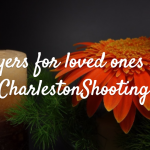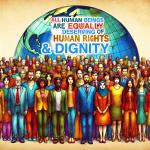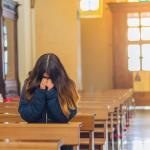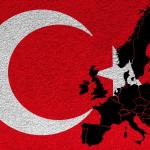 During my radio segment on this morning’s episode of the Son Rise Morning Show with Brian Patrick, my conversation with Brian took an interesting spin on the recent Boston Marathon tragedy and its aftermath.
During my radio segment on this morning’s episode of the Son Rise Morning Show with Brian Patrick, my conversation with Brian took an interesting spin on the recent Boston Marathon tragedy and its aftermath.
We are, of course, still waiting for the details of the investigation to unfold and as Americans, we seek to avoid a rush to judgment on the facts of the case. But the truth of the matter is that last week’s terror crime, investigation and manhunt played out in incredibly rapid succession before the eyes of our nation.
I remember remarking to a friend on Saturday how amazing it was that in the course of just a few days, a crime of such horrific magnitude could be perpetrated, mourned, and solved. It was as though there were not enough moments to contain the flood of emotions we were all going through.
I responded personally by heading largely offline except to keep tabs on the situation. With my son Eric, a college junior in Cambridge, on lockdown in his dorm room, it was all I could do to put one foot in front of another. I simply cannot imagine the grief of those who lost their loved ones and the pain of those who suffered horrific injuries — both physically and emotionally.
So today’s conversation with Brian Patrick looked at the cross section of two of my favorite topics, social media and faith, with respect to the Boston bombings.

As we watched the events in Boston unfold, we know that social media was integral in advancing the investigation:
- Social media attention helped surface leads quickly and efficiently as millions watched the devastating blasts and the subsequent investigation online.
- A Pew Research Center study found that those under thirty were more likely to view bombing related news online than via television coverage.
- Social media was able to help people to stay informed and safe, especially during the manhunt for the suspects and helped us to keep in touch with loved ones who were in the midst of the situation.
With so much coverage online, there were definitely pitfalls that occurred as the investigation unfolded. Vigilantism became rampant and “witch hunts” spread like wildfire, with false suspects identified, including then missing and now deceased Brown University student Sunil Tripathi on the receiving end of the wrath of social media sleuths. The overwhelming nature of this became so rampant on the site Reddit that the site’s general manager Erik Martin offered a formal public apology.
I believe in looking back at the events of last week, we will see new and evolving ways of responding to such public crimes in the future. Much of the social media public is asking to be involved in future criminal investigations, to be given information and allowed to participate in the legwork aimed at capturing criminals. Last week, we saw Twitter awash in tweets of folks tuned into police scanners as the manhunt unfolded. In light of this trend, I believe we must beware of protecting proper legal protocol and people’s right to privacy, as well as the public’s safety.
Looking at the faith connections in this story, a few things are apparent about the roles social media played in Boston and beyond. Social media allowed us to pray with and for our brothers and sisters in Boston and in the Waco, Texas explosion. Online resources allowed us to view, hear and receive needed spiritual shepherding from Cardinal O’Malley and to attend prayer services held in honor of the victims.
Last week, as Editor at CatholicMom.com, I made the call to suspend our programming on the website for a few days as the events in Boston unfolded around us. Going on with “business as usual” felt wrong — our readers (and I too) needed time to pray, to mourn, and to move beyond the fear. Those needs continue even as things this week seem to have resumed some tiny semblance of normalcy. But one thing is clear to me: the new “normal” in moments of fear and crisis will include not only social media coverage, but also the public’s active participation in solving crimes. Hopefully our faith response will be equally as prevalent in moments of terror.















